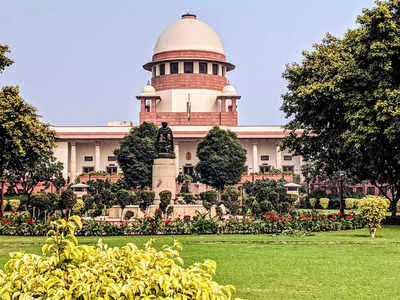New Delhi: The Supreme Court has said governors must remember they have a responsibility to clear Bills passed by state assemblies “as soon as possible” under Article 200 of the Constitution.
The remark by the Supreme Court comes at a time when several Opposition-ruled states are protesting over governors’ inaction on bills passed by the state assemblies.
A bench comprising CJI DY Chandrachud and Justice PS Narasimha said, “Article 200 of the Constitution, the first provison of Article 200 states that Governor may, as soon as possible, after the presentation of the bill for assent, return the bill, if it is not Money Bill together with the message for reconsideration to the state legislature”.
The court said the expression “as soon as possible” had a significant constitutional intent and must be borne in mind by constitutional authorities, IANS reported.
The observation was made while the top court was hearing a petition filed by the Telangana government seeking direction to Governor Tamilisai Soundararajan to give her assent to ten bills passed by the Assembly.
As Solicitor General Tushar Mehta, representing the Telangana Governor, submitted that this observation in the order was not necessary, the Chief Justice said, “Mr Solicitor, we have not made this observation about this particular Governor. We said it must be borne in mind by constitutional authorities.”
Mehta said: “This was not needed…I can say nothing more…I do not want to vitiate the atmosphere further.”
The court disposed of the plea after SG Mehta told the bench that presently no Bills were pending before the governor.
Article 200 of the Constitution empowers the Governor to either assent to a Bill passed by the state legislature or to withhold assent therefrom or to reserve the Bill for consideration of the President.
During the hearing, senior advocate Dushyant Dave, representing the Telangana government, urged the court to pass directions “once and for all” to put the issue at rest. “In Madhya Pradesh, bills are being cleared within a week, in Gujarat within one month. Telangana is an opposition state….so this is happening,” Dave said.
Mehta opposed these submissions and contended that the matter should not be generalised like that. Dave then said, “You will not because you’re a law officer appointed by the Central government”.
In a writ petition filed in March, the Telangana government accused the Governor of creating a “constitutional impasse” by refusing to act on several Bills passed by the state legislature. The petition pleaded with the Supreme Court to declare the delay by the Governor as illegal, irregular, and unconstitutional.


Comments are closed.